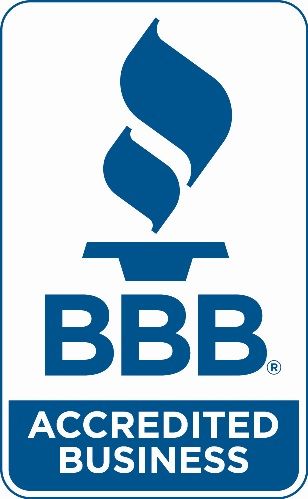Call or Text (406) 861-4229 to get a cash offer on your house!
Mastering Home Sales: A Comprehensive Guide to Pricing and Negotiation
Selling a home demands a balance between achieving a fair price and expediting the sale. Homeowners equipped with knowledge and negotiation skills can navigate this terrain with confidence. This guide provides the framework for defining a competitive yet equitable selling price and deploying negotiation techniques that honor a home’s value while enabling prompt transactions. Reflecting the candid, transparent service principles of Billings Homebuyers, the forthcoming insights delve into the strategic aspects of home sales, guiding sellers toward successful outcomes.
Establishing a Competitive Selling Price
A well-set price is the bedrock of a successful home sale. It requires market awareness and an objective assessment of the property. Sellers should start by analyzing local market trends including current supply and demand, the average time homes spend on the market, and the selling prices of comparable properties. An accurate and competitive listing price aligns with these indicators while accounting for the unique aspects of the home such as location, size, condition, and upgrades.
The Comparative Market Analysis
Executing a comparative market analysis (CMA) is pivotal in pricing a home effectively. This involves a deep dive into the details of recently sold properties that are similar in features and proximity. The CMA points to a price range where the property will be competitive in the market, enticing to buyers, and capable of meeting the seller's financial goals.
Adjusting for Unique Home Features
Each home carries unique features and upgrades that can either uplift or detract from its value. High-end finishes, energy-efficient upgrades, or a desirable location can justify a higher list price, while issues like outdated systems or proximity to less desirable features may require a price adjustment. Sellers should weigh these unique elements carefully to ensure the price accurately reflects the home’s overall appeal and condition.
Professional Appraisals and Valuations
Seeking a professional appraisal can give sellers an unbiased estimate of their home’s worth. An appraiser will provide a detailed report based on a thorough inspection of the property and an analysis of the real estate market. Although not always necessary, an appraisal can be a powerful tool in setting a price and negotiating with confidence.
Pricing Strategies for Fast Sales
For those requiring a swift sale, setting an attractive price is key. A slightly under-market price can generate significant interest and potentially lead to multiple offers. However, this strategy must be used judiciously to prevent undervaluing the property. Sellers should consider their timeline and financial needs to determine the best pricing approach for a quick transaction.
The Art of Negotiation in Home Sales
Once pricing is set, sellers must be prepared to engage in negotiation. This process requires patience, clear communication, and strategic concessions. Starting discussions with a clear understanding of the lowest acceptable price offering some room for negotiation can keep the dialogue open and constructive.
Effective Communication with Buyers
Communicating effectively with buyers is essential. This means responding promptly to offers, articulating the benefits of the property, and addressing concerns directly. Sellers should aim to build a rapport with buyers, as a positive relationship can influence the negotiation process and lead to a more favorable outcome.
Handling Multiple Offers
In a scenario with multiple offers, sellers have the advantage. They can use this leverage to negotiate better terms by encouraging a bidding war. Transparency about the multiple-offer situation can prompt buyers to present their best terms quickly, maximizing the seller's gains without dragging out the negotiation process.
Navigating Lowball Offers
Receiving a lowball offer can be disheartening but responding with patience and professionalism is crucial. A counteroffer that gently brings the buyer up to a more reasonable level can keep the negotiation alive. Sellers should refrain from taking low offers personally and instead focus on moving the conversation forward.
The Role of Contingencies in Negotiation
Contingencies often accompany offers and can affect the negotiation process. While some contingencies are common, such as those relating to inspections or financing, sellers should evaluate each one carefully. Removing or adjusting contingencies can be part of the negotiation, especially if they restrict the sale or pose potential delays.
Closing the Deal
Finalizing the sale entails mutual agreement on price and terms. Once a consensus is reached, sellers should work diligently to maintain momentum towards closing. This includes meeting all contractual obligations, maintaining the home's condition, and facilitating any required inspections or appraisals.
Determining the right price for a home and wielding negotiation tactics deftly are skills that can greatly influence the outcome of a home sale. Sellers armed with a strong pricing strategy and honed negotiation abilities position themselves for a transaction that meets financial expectations and timelines. The key lies in balancing a competitive edge with an openness to dialogue, ensuring both seller and buyer can part ways feeling satisfied with the deal struck. With the right approach, sellers can navigate the sale of their home with assuredness and success, embodying a spirit of directness and honesty in every interaction.
Ready to find the right price for your home and negotiate like a pro? Billings Homebuyers is here to help! With our expertise and dedication to a swift, fair sale, we'll guide you every step of the way. Don't navigate the complexities of the housing market alone. Contact us today to get started on your journey to a successful home sale.










Getting Started is Easy


